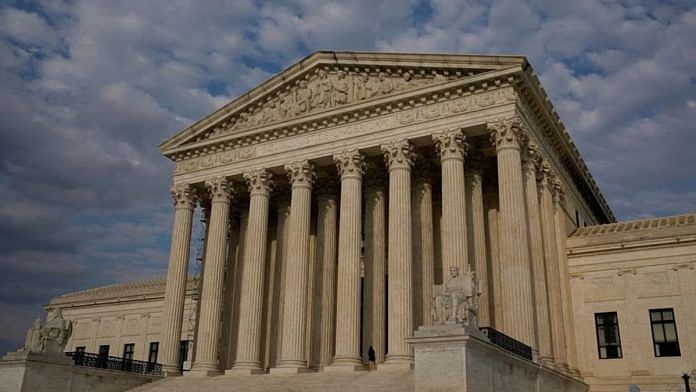The recent US Supreme Court ruling, which ended ‘affirmative action’ or ‘positive discrimination’ in college admissions, has sparked significant debate and discussion across the world. The historic 29 June ruling – which, as per BBC, even President Joe Biden “strongly” disagreed with – effectively ended race as a criterion for university admissions nationwide. While the focus of most arguments on this decision has largely been on the case itself and its implications on racial preferences in the US, it is essential to consider the broader impact of this decision, particularly in the context of India’s reservation policy, and the need for comprehensive and equitable approaches to address historical inequalities.
What the US judgment means
The decision, which came after Students for Fair Admissions head Edward Blum filed two cases questioning the race-conscious admission practices of Harvard University and the University of North Carolina, reflects a growing sentiment that affirmative action has lost its moral force. “Many universities have, for too long, concluded wrongly that the touchstone of an individual’s identity is not challenges bested, skills built, or lessons learned but the color of their skin… Our constitutional history does not tolerate that choice,” wrote Chief Justice John Roberts, as per NPR. Furthermore, Justice Clarence Thomas, an African-American judge, also criticised the policies, calling them “rudderless, race-based preferences” that “fly in the face of our colorblind Constitution.”
Affirmative action was initially conceived as a means to rectify historical injustices and promote diversity. However, over time, it has deviated from its original intent, leading to a system that often favours privileged students rather than addressing systemic inequalities.
The case, along with prior legal rulings, has raised concerns about the fairness and transparency of the admissions process in the country. The evidence presented by Asian-American plaintiffs in the case demonstrates discriminatory practices, highlighting the need for a more comprehensive and just approach to affirmative action. While elite institutions may continue their diversity missions, there is growing scepticism about the efficacy of their efforts and the transparency of their selection processes.
Also read: Dalit absence from Modi-Biden dinner a tale of missed opportunities
Lessons for India’s reservation system
India has its own version of affirmative action, in the form of its reservation policy. It aims to provide opportunities to marginalised communities by reserving a certain percentage of seats in educational institutions and public sector jobs for people belonging to Scheduled Castes, Scheduled Tribes, and Other Backward Classes. The objective is to address historical disadvantages, promote social justice and end caste-based discrimination in the country.
The US Supreme Court’s ruling on affirmative action, however, has sparked conversations about the future of India’s reservation policy. Critics argue that the ruling may embolden opponents of the reservation system in India, prompting them to question its effectiveness and relevance, in turn exacerbating existing inequalities and hindering social progress.
While India’s reservation policy differs from affirmative action in the US, there are lessons to be learned from the challenges faced by the latter. The shortcomings of affirmative action in the US should serve as a cautionary tale for India, emphasising the need for a newfound approach to addressing societal inequities.
India’s reservation policy should be periodically evaluated and reformed to ensure it remains effective and equitable. There is a need to address the concerns raised by critics while ensuring that the policy continues to uplift marginalised communities. Transparency, fairness, and meritocracy should be central to any reservation system.
Transparency, for one, is crucial in addressing policy criticisms and building trust with communities. If clear guidelines and criteria are established and openly communicated, concerns about favouritism or bias can be easily alleviated. Next, fairness in policymaking helps ensure that all sections get their deserved due. For this, it is imperative to properly analyse genuine needs and socioeconomic backgrounds – factors that often contribute to social disadvantage – before crafting or implementing action plans. Last, meritocracy is essential to uphold standards of excellence while enforcing affirmative action measures to identify individuals who are truly deserving of help. This way, the government can help people in need while silencing critics of reservation.
Also read: California anti-caste bill a milestone in equality. It’s a role model for others to follow
Promoting social justice and inclusive policies
The US and India must strive to create a society that upholds the principles of social justice and inclusivity. Recognising the historical context in which these policies were implemented and the ongoing struggles marginalised communities face is crucial.
Rather than relying solely on race or caste-based preferences, comprehensive approaches should be adopted considering multiple dimensions of disadvantage, including socioeconomic factors and educational opportunities. This will enable a more nuanced and effective approach to promoting diversity and social justice.
The author is the president of Foundation for Human Horizon, an UN-affiliated NGO that’s
leading the Anti-Caste legislation movement in the USA and an Artificial Intelligence (AI)
Research Scholar at Johns Hopkins University.Views are personal.



